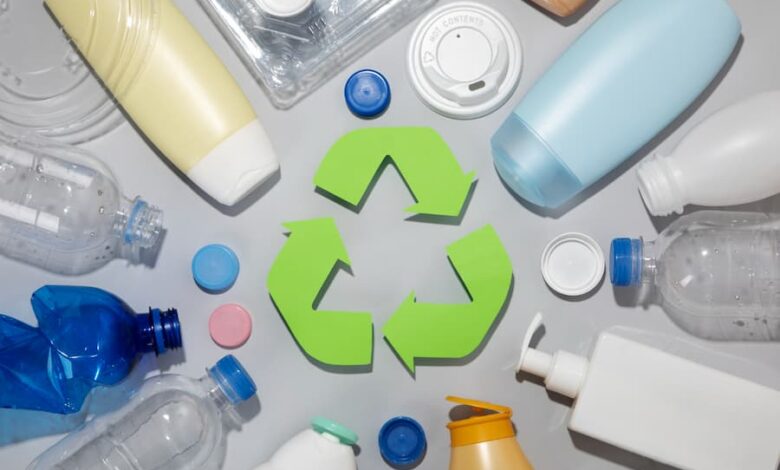What are the Latest Innovations in Plastic Waste Recycling?

Plastic waste makes the world realise to find ways to innovate on recycling technologies. The current recycling methods could be more efficient and capable of handling the diversification of plastic waste that is now being produced. Thus, new advanced recycling solutions emerge to address these challenges and improve the efficiency, scalability, and sustainability of recycling. From chemical recycling to using AI-driven sorting systems, all these innovations are shifting how plastic waste is managed.
Companies and homes are also doing their part in that regard by incorporating environmentally friendly services such as Skip Hire Wigan, which ensures the proper collection of waste materials for recycling. The article has sought to look into the newest inventions that are going to alter the way plastic waste will be recycled shortly.
Chemical Recycling of Complex Plastics
Chemical recycling degrades plastics to their elementary chemical building blocks. The quality of plastics does not degrade with chemical recycling. Compared to mechanical recycling, chemical recycling does not reduce the quality of plastics. Rather, it can produce high-grade recycled materials. This technology can process complex and mixed plastic waste, including items that were previously considered unrecyclable. For example, pyrolysis converts plastics into fuels, while depolymerisation restores them to their original monomers. Such technologies decrease reliance on virgin plastic production but offer a more viable path in managing plastic waste at the scales needed.
High-Auto AI Sorting Systems
Sorting is critical to successful recycling, and advanced AI-based systems make such processes even quicker and more precise. AI-based robots and optical sensors can detect various plastics, even in mixed streams, and sort them correctly. These systems reduce human error while handling larger volumes of waste in a shorter period. AI improves the accuracy of sorting, thereby ensuring that recyclable materials are processed efficiently with minimal contamination and maximum yields in recycling. This is particularly helpful for facilities that handle a variety of plastic types.
Enzymatic Recycling for PET Plastics
It’s a new, innovative technology that recycles PET plastics to the most simplified constituent through specially designed enzymes, unlike regular recycling, which takes much higher temperatures, thus less energy consumption and less carbon dioxide emitted. The recovered material may then be converted to manufacture new plastics with equivalent quality that will make way for the circular economy. Enzymatic recycling is specifically applicable for recycling PET bottles and packages since it can offer a great alternative to landfilling or incineration. As this technology matures, it promises to revolutionise the recycling of other types of plastics as well.
Bioplastics Recycling Solutions
Renewable materials like corn starch or sugarcane have brought new recycling issues with them and opportunities. For now, novel solutions are found in the development of unique processes particularly adapted to recycle bioplastics such that they do not dilute traditional plastic streams, allowing bioplastics to be divided and separated, composted, or chemically recycled nowadays to become valuable resources through the production of biofuels and organic compost. These developments are very important in controlling the surging use of bioplastics for packaging and consumer products.
Plastic-to-Fuel Technologies
The mentioned processes, such as pyrolysis, involve heating plastic waste in a non-oxidative condition where high energy outputs are generated. This method reduces both plastic volume and the production of alternative energy sources. Although not the be-all of plastic pollution solutions, plastic-to-fuel technology will help significantly in handling hard-to-recycle plastics and shifting to a circular waste economy.
Community-Based Recycling Initiatives
Community-based innovations empower the local population to address plastic waste creatively. For instance, mini plastic shredders and 3D printing technologies empower communities to recycle plastic waste into furniture, building materials, or household items. Such initiatives combine recycling with education, thus increasing people’s consciousness of waste management. Providing tools and knowledge encourages self-reliance and reduces the environmental footprint of plastic waste through community-based recycling. These grassroots innovations complement industrial recycling efforts and extend the scope of sustainable waste management.
Conclusion
Innovations in plastic waste recycling are, therefore, important for future generations, given the rampant growth of plastic pollution in the environment. Advanced chemical processes, AI-driven sorting systems and community initiatives transformed the industry, paving the way forward for a sustainable future. Make sure that waste material goes to its proper disposal, besides supporting innovative efforts in recycling. As these technologies continue to improve, they are a hopeful measure for reducing plastic waste and conserving resources for generations in the future.
Visit Lyrics Baazaar for more informative blogs.




